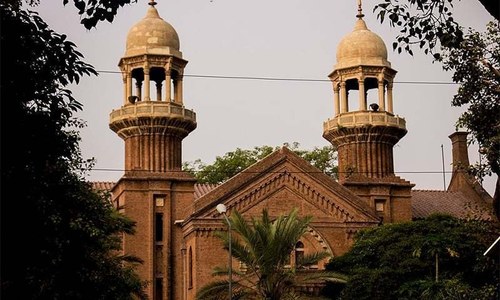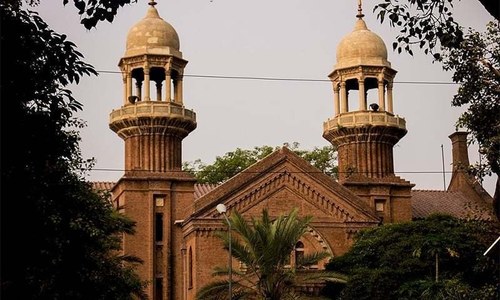ISLAMABAD: The federal government on Saturday approached the Supreme Court to challenge a ruling by the Lahore High Court, Rawalpindi bench, that the detention of Advocate Inamur Rahim, a retired army officer, was illegal and unlawful.
The defence and interior secretaries in an appeal filed through Additional Attorney General Sajid Ilyas Bhatti sought suspension of the LHC order till the present case was decided by the apex court.
While declaring his detention unlawful, the LHC on Thursday had directed the military authorities to release the lawyer. The ruling came on a petition filed by Husnain Inam, a son of retired Lt Col Rahim.
In its appeal, the federal government argued that the LHC while deciding the petition ignored the fact that the lawyer was apprehended on charges of espionage under the Official Secrets Act, 1923 and offences under the Pakistan Army Act, 1952.
It said investigation against the suspect under those charges was already under way as material evidence had been collected against him that prima facie constituted a case against him.
State security will be compromised if law enforcers are denied right to detain suspects on espionage charge, SC told
The defence and interior secretaries pleaded that release of the suspect at this stage of investigation would amount to hampering the entire process of investigation involving heinous charges.
Moreover, the appeal mentioned that the suspect’s son had approached the LHC through a habeas corpus petition, which became infructuous after the high court was informed that the suspect had been apprehended by the military authorities under Section 2(1)(d) read with Sections 59 and 73 of Pakistan Army Act, Pakistan Army Rules and Official Secrets Act, 1923.
Therefore, the federal government urged the SC to set aside the high court short order. It noted that the LHC while passing the short order had extended final and ultimate relief in haste even without recording the reasons. The LHC also ignored the settled principle of law that a proper notice to the attorney general was mandatory where the interpretation of any law was required, but in the present case no such notice had been issued. This made the Jan 9 short order a nullity in law, it argued.
The LHC also failed to appreciate the last dictum laid down by the SC while adverting to the provisions of Section 2(1)(d) of the Pakistan Army Act, 1952, where the act as the rules have been declared valid pieces of legislation, the appellant observed.
Moreover, the defence and interior secretaries in the appeal argued that state security would be adversely affected if the law enforcement agencies were denied right to detain the suspects who were allegedly involved in espionage activities against the state and were being investigated.
The appeal further pointed out that the LHC overlooked the law that any person, including a retired army officer, if committed any offence under the Pakistan Army Act, 1952 and the Official Secrets Act, 1923 in relation to the affairs of the armed forces, the person would be subject to the same act and could be arrested or detained for investigation, collection of evidence and trial if recommended in the matter.
There were prima facie charges and evidence against the suspect for espionage activities and that he had been arrested rightly, the appeal contended, adding that the Jan 9 short order of the LHC was a result of misreading or non-reading of the available record.
The appeal challenged the short order, which had an effect of a final order, as the petitioners would suffer irreparable loss if the LHC order was implemented. The detailed reasons, once passed by the high court, would be placed before the Supreme Court and the grounds and questions of law raised in the present case could be amended accordingly, the federal government mentioned in its appeal that also named the lawyer’s son, the Rawalpindi district police officer and the Morgah police SHO as respondents.
Published in Dawn, January 12th, 2020













































